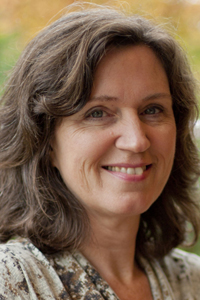Page 24 • (2,806 results in 0.027 seconds)
-

elected President. This, alongside her longstanding personal and scholarly commitments to social justice, motivated her to help found Indivisible Gig Harbor. The group, which has a Facebook page with more than 500 members, began as a meeting of like-minded people at a coffee shop. That initial group formed separate local organizations, one of which was Indivisible Gig Harbor. The group nominated co-chairs and began holding regular meetings at the Gig Harbor library. Indivisible Gig Harbor’s mission
-
Many student interactions with the RAP committee require the student to submit a petition to explain the circumstances of their situation. The petition process allows students to request an exception to policy, permission to step out of the nursing curriculum sequence, address professional conduct issues, or to dispute a grade. Regardless of the circumstances, the process of writing a petition is the same. Please also see the Handbook section on Interplay between PLU’s Student Code of Conduct
-
Collin Brown: A Lute Returns Home Posted by: Matthew / December 8, 2017 December 8, 2017 Robin and Collin (pictured in 2017) were PLU students and, eventually, became spouses. Now, Collin is back as a professor. By Henrik Rojahn '18PLU HumanitiesIn Fall 2017, PLU’s Department of Languages and Literatures welcomed visiting lecturer Collin Brown. Professor Brown is teaching first semester Norwegian as well as Writing 101. As a former Lute (2010), Professor Brown is naturally inclined towards the
-
hold a bachelor’s degree from a regionally-accredited college or university or recognized international university at the start of the PLU graduate program. Applicants for the M.F.A. in creative writing may hold a bachelor’s degree or equivalent qualifications. Students who meet or exceed all program requirements for admission are eligible to be considered for admission as regular status students. Students who present credentials below general standards for graduate study, who also exhibit
-
. Students will also learn about scientific writing and presentation skills, explore possible careers in oceanography and related fields, receive tips for gaining additional undergraduate research experience, and get an overview of the graduate school admissions process. The program will organize fun activities in the Seattle area, including hiking, kayaking, and sailing. Participants will be provided on-campus housing, meals, and partial travel reimbursement. Undergraduate students with programming
-
ApplicationStudents can apply via the Common App. It is free to apply to PLU!Personal EssayThe essay should be at least 250 words.Official TranscriptsSend in official transcripts from all high school and college coursework. When reviewing applications of prospective freshmen, PLU computes an “admission GPA” for the applicant. Check out the weighted GPA section below.Academic RecommendationThe academic recommendation must be from a qualified person familiar with your academic record such as a principal, teacher
-
Why Study Philosophy?Philosophy involves inquiry about the most basic and compelling questions of life. German philosopher Immanuel Kant once summed up these questions in this way: “What can I know? What should I do? What may I hope?” In doing philosophy, people learn to clarify questions such as these and to evaluate beliefs held about them. They examine the reasons given for personal lifestyles, for public policies from just about everything from war to welfare, from criminal justice to
-

of her PLU experience. Not part of a traditional degree program, Flenniken was a member of the first full graduating class of the Rainier Writing Workshop at PLU, receiving a Master of Fine Arts in Creative Writing in 2007. Trained as an engineer with degrees from Washington State University and University of Washington, it was a night class designed to merely get her out of the house that got Flenniken really interested in poetry. “I fell madly in love with poetry from the first night of that
-
participation explicitly graded? Are in-class activities graded? If so, how? Communication Etiquette What level of formality is expected for oral and written communications? What are expectations for discussing sensitive or personal topics? What is your preferred method for communication outside of class? If students contact you, when should they expect a reply? Academic Integrity When is collaboration with peers appropriate and inappropriate? When and how should students cite course readings or other
-
of Study The student describes how the objectives will be attained through sequences of courses, reading programs, regular coursework, independent study, travel, off-campus involvement, personal consultation with faculty members or other means. A Program of Evaluation The student describes the criteria to be used to measure achievement of the objectives and specifies the topic of the senior thesis/capstone. A Statement of Review The student describes how previous coursework and life experiences
Do you have any feedback for us? If so, feel free to use our Feedback Form.


